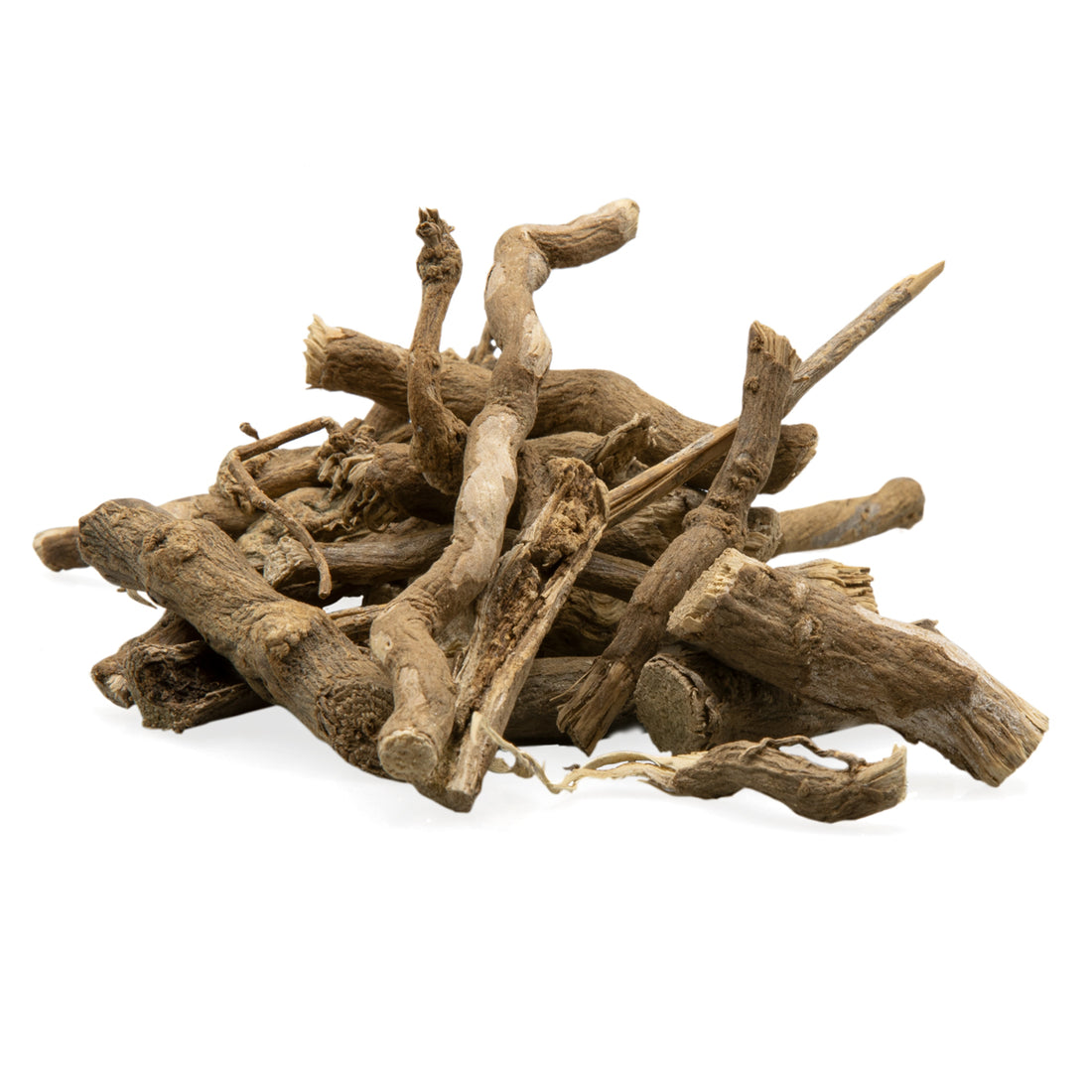Punarnava, also known as Boerhavia Diffusa, is a remarkable herb that has been used in Ayurvedic medicine for centuries. This unassuming plant has a rich history and a wide range of therapeutic benefits that make it a valuable addition to any natural health regimen. In this comprehensive guide, we will delve into the fascinating world of Punarnava, exploring its botanical properties, traditional uses, and the latest scientific research on its remarkable effects.
What is Punarnava?
Punarnava, or Boerhavia Diffusa, is a perennial herb that is native to many parts of the world, including India, Africa, and the Americas. The name "Punarnava" is derived from the Sanskrit words "Punar" meaning "again" and "Nava" meaning "new," referring to the plant's ability to regenerate and thrive even in harsh conditions.
Botanical Information
Punarnava is a creeping, herbaceous plant that can grow up to 60 cm in height. It has small, rounded leaves and produces small, pink or white flowers that bloom throughout the year. The plant's root system is the most commonly used part, as it is rich in a variety of phytochemicals that contribute to its therapeutic properties.
Historical and Traditional Use
Punarnava has a long history of use in Ayurvedic medicine, where it is highly regarded for its ability to support the health of the liver, kidneys, and respiratory system. In traditional Ayurvedic texts, Punarnava is described as a "Rasayana," meaning a rejuvenative herb that can help to restore balance and vitality to the body.
Ayurvedic Properties and Actions of Punarnava
Punarnava is classified in Ayurveda based on its unique set of properties and actions, which contribute to its wide-ranging therapeutic benefits.
Rasa (Taste)
Punarnava is considered to have a bitter (Tikta) and pungent (Katu) taste, which helps to balance the Kapha and Vata doshas in the body.
Guna (Properties)
Punarnava is described as having a light (Laghu) and dry (Ruksha) quality, which makes it beneficial for individuals with a Kapha-predominant constitution.
Virya (Potency)
Punarnava is considered to have a heating (Ushna) potency, which helps to stimulate the body's metabolism and support the elimination of toxins.
Vipaka (Post-Digestive Effect)
The post-digestive effect of Punarnava is considered to be pungent (Katu), which further enhances its ability to balance the Kapha and Vata doshas.
Karma (Actions)
In Ayurvedic tradition, Punarnava is believed to have a wide range of therapeutic actions, including:
- Hepatoprotective: Helps to protect and support the health of the liver.
- Nephroprotective: Supports the health and function of the kidneys.
- Diuretic: Promotes the elimination of excess fluids and toxins from the body.
- Anti-inflammatory: Helps to reduce inflammation throughout the body.
- Antioxidant: Neutralizes free radicals and supports overall cellular health.
- Respiratory Support: Helps to clear excess mucus and support the health of the respiratory system.
Key Therapeutic Benefits of Punarnava
Punarnava's unique Ayurvedic properties and actions translate into a wide range of therapeutic benefits that make it a valuable herb for supporting overall health and well-being.
Liver and Kidney Health
Punarnava is well-known as a tonic for the liver and kidneys, and is often used to support these areas of the body. Its hepatoprotective and nephroprotective properties help to correct the function of the liver by removing toxins from the liver cells, and support the health and function of the kidneys.
Respiratory Support
Punarnava's heating qualities also make it a powerful herb for melting excess kapha in the lungs and respiratory tract. It can help to clear excess mucus and support the overall health of the respiratory system.
Digestive Support
Punarnava's bitter and pungent taste can help to stimulate the digestive fire (Agni) and support healthy digestion. It may also help to alleviate issues like constipation, bloating, and gas.
Anti-inflammatory Properties
Punarnava has been shown to possess potent anti-inflammatory properties, which can help to reduce inflammation throughout the body. This makes it a valuable herb for supporting joint health, reducing pain, and promoting overall well-being.
Antioxidant Properties
Punarnava is rich in a variety of phytochemicals, including flavonoids and phenolic compounds, that have been shown to possess powerful antioxidant properties. These antioxidants can help to neutralize free radicals and support cellular health.
Dosage and Administration of Punarnava
Punarnava can be used in a variety of forms, including dried root powder, decoctions, tinctures, and capsules. The recommended dosage can vary depending on the individual's constitution, the specific condition being addressed, and the form of Punarnava being used.
Recommended Dosage
For general health and wellness, a typical dosage of Punarnava powder is 3-6 grams per day, taken in divided doses. For specific therapeutic purposes, the dosage may be adjusted under the guidance of a qualified Ayurvedic practitioner.
Forms of Punarnava
Punarnava can be found in a variety of forms, including:
- Dried root powder
- Decoctions (Kwatha)
- Tinctures
- Capsules or tablets
The appropriate form of Punarnava may depend on the individual's needs and preferences, as well as the specific condition being addressed.
Precautions and Contraindications
Punarnava is generally considered safe when used in appropriate doses. However, it is important to note that Punarnava may interact with certain medications, such as diuretics and blood thinners. Pregnant or breastfeeding women should consult with a healthcare professional before using Punarnava. Additionally, individuals with certain medical conditions, such as low blood pressure or digestive issues, may need to exercise caution when using Punarnava.
Scientific Research and Studies on Punarnava
In recent years, there has been a growing body of scientific research that has explored the various therapeutic properties and potential benefits of Punarnava. These studies have provided valuable insights into the mechanisms of action and potential applications of this remarkable herb.
Hepatoprotective Effects
Several studies have demonstrated the hepatoprotective (liver-protective) effects of Punarnava. Researchers have found that Punarnava can help to protect the liver from damage caused by various toxins, and may even help to regenerate liver cells.
Nephroprotective Effects
Punarnava has also been shown to possess nephroprotective (kidney-protective) properties. Studies have found that Punarnava can help to protect the kidneys from damage and support their overall health and function.
Anti-inflammatory and Antioxidant Effects
The anti-inflammatory and antioxidant properties of Punarnava have been well-documented in scientific research. Studies have shown that Punarnava can help to reduce inflammation and oxidative stress, which can contribute to a wide range of health issues.
Other Potential Benefits
In addition to its well-established effects on the liver, kidneys, and inflammation, Punarnava has also been studied for its potential benefits in other areas, such as cardiovascular health, diabetes management, and cancer prevention.
Punarnava in Ayurvedic Formulations
Punarnava is a key ingredient in many Ayurvedic formulations, where it is often combined with other herbs to enhance its therapeutic effects.
Popular Ayurvedic Formulations with Punarnava
Some of the most well-known Ayurvedic formulations that contain Punarnava include:
- Punarnavadi Guggulu: A formulation used for supporting liver and kidney health, as well as joint health.
- Punarnava Mandura: A formulation used for supporting the health of the blood and circulatory system.
- Punarnava Basti: A formulation used for supporting the health of the urinary system.
Synergistic Effects with Other Herbs
Punarnava is often combined with other herbs in Ayurvedic formulations to create synergistic effects. For example, it may be combined with herbs like Guduchi, Shilajit, or Gokshura to enhance its therapeutic benefits.
Cultivation and Sustainability of Punarnava
Punarnava is a hardy plant that can be found growing in many parts of the world, including India, Africa, and the Americas. However, as the demand for Punarnava continues to grow, it is important to ensure that it is cultivated and harvested in a sustainable manner.
Geographical Distribution
Punarnava is native to many tropical and subtropical regions, and can be found growing in a variety of habitats, including grasslands, wastelands, and even along roadsides.
Cultivation Practices
Punarnava can be cultivated through various methods, including seed propagation, stem cuttings, and root division. It prefers well-drained, sandy soil and can tolerate a wide range of soil pH levels.
Conservation and Sustainability Efforts
As the demand for Punarnava continues to grow, it is important to ensure that its cultivation and harvesting are done in a sustainable manner. This may involve the development of sustainable farming practices, as well as conservation efforts to protect wild populations of the plant.
Conclusion
Punarnava, or Boerhavia Diffusa, is a remarkable herb that has been used in Ayurvedic medicine for centuries. With its wide range of therapeutic benefits, including its ability to support liver and kidney health, respiratory function, and overall well-being, Punarnava is a valuable addition to any natural health regimen.
As the scientific research on Punarnava continues to expand, we are gaining a deeper understanding of the mechanisms behind its remarkable effects. By incorporating Punarnava into our daily lives, we can harness the power of this ancient herb to support our overall health and well-being.
Whether you are looking to support your liver and kidneys, improve your respiratory function, or simply enhance your overall vitality, Punarnava is a herb worth exploring. With its rich history, diverse therapeutic applications, and growing scientific validation, Punarnava truly is a remarkable gift from nature.
















































